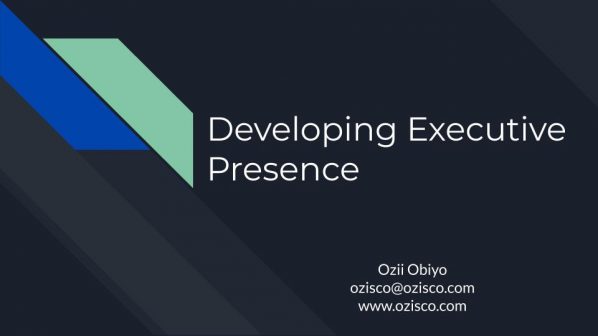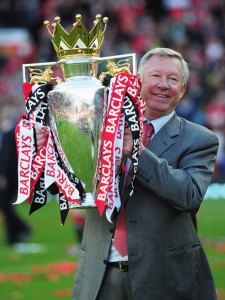Earlier this year, I was invited to give a talk on Developing Executive Presence to a group of startup founders from Morocco, Tunisia, Ghana, and Nigeria. Below are excerpts from my talk with corresponding slides. I hope you get some value from it.
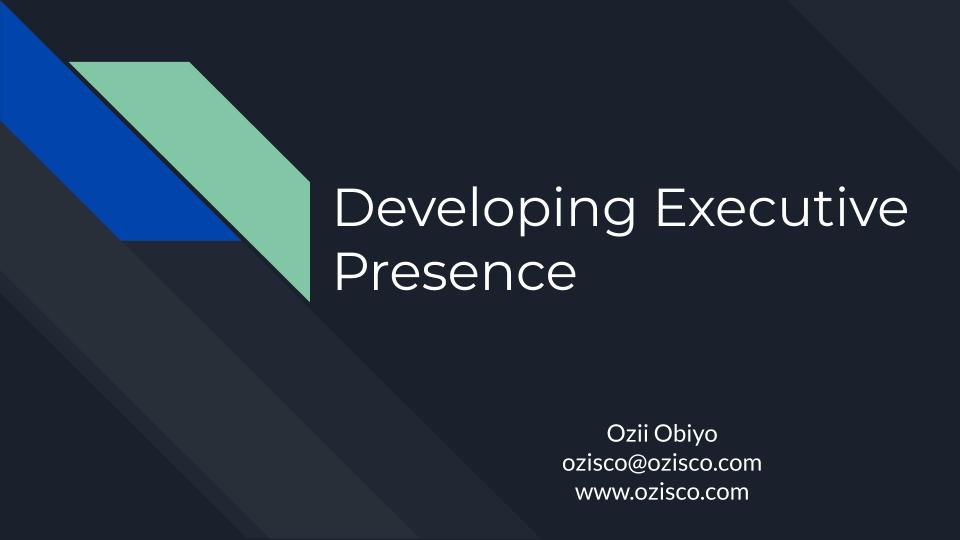
I strongly believe a mastery of executive presence (EP) can help you close more business.


Executive presence starts with you. It requires you to work on your whole self.

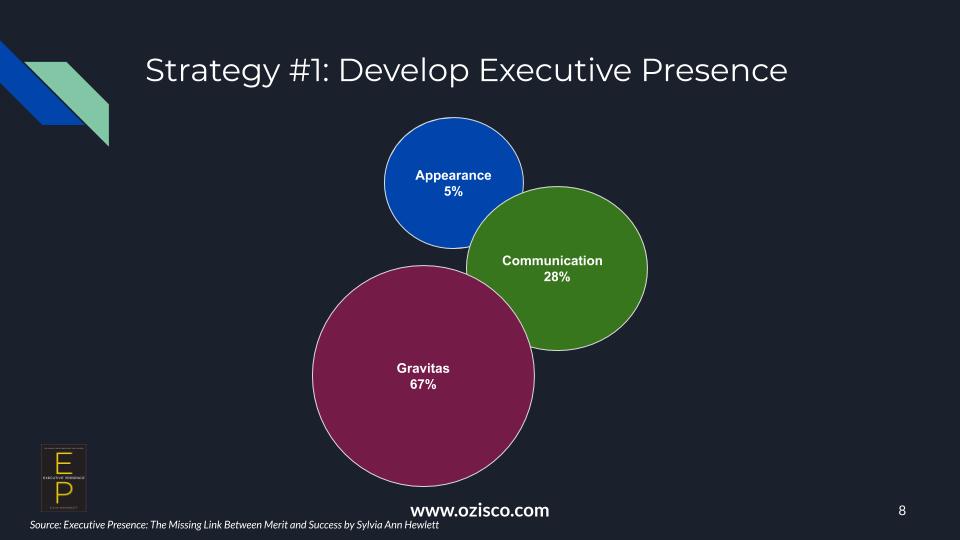
From my research, the best definition of executive presence (EP) comes from Sylvia Ann Hewlett in her book “Executive Presence: The Missing Link Between Merit and Success”. She argues that EP rests on 3 pillars: How you act (gravitas), how you speak (communication), and how you look (appearance). Each pillar is somewhat interactive. For example, if your communication skills ensure that you can command a room, your gravitas grows exponentially; conversely, if your presentation is rambling and your manner is timid, your gravitas suffers a blow.

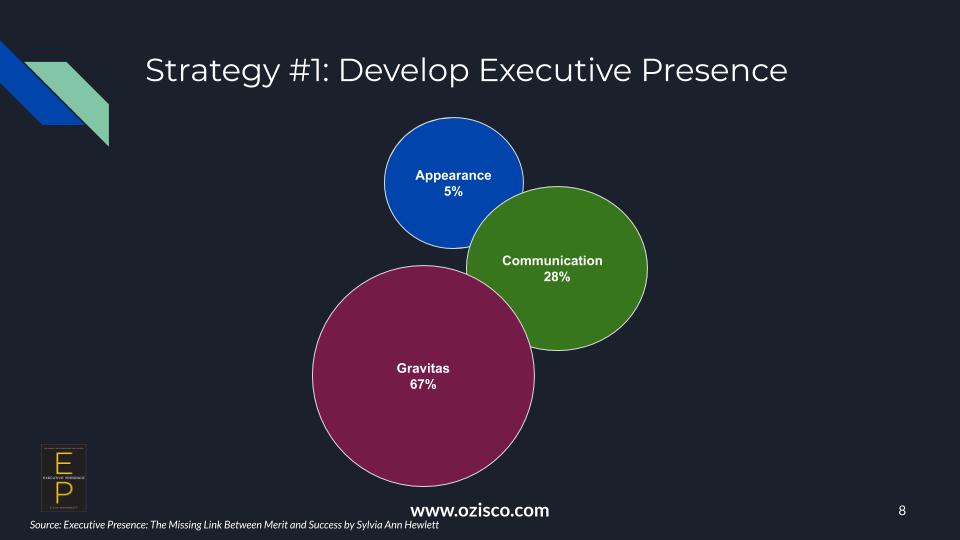
The numbers in each circle means something as well. Of the 268 executives she interviewed, 67% ranked gravitas as the most important pillar. Which means, “you know your stuff cold” and can go “six questions deep” in your domain of knowledge. Next is communication which is at 28% and appearance 5%. The low percentage for appearance explains why executives in Silicon Valley can get away with wearing T-shirts, shorts, and slippers, because they know their stuff cold and can speak to it with confidence and conviction.

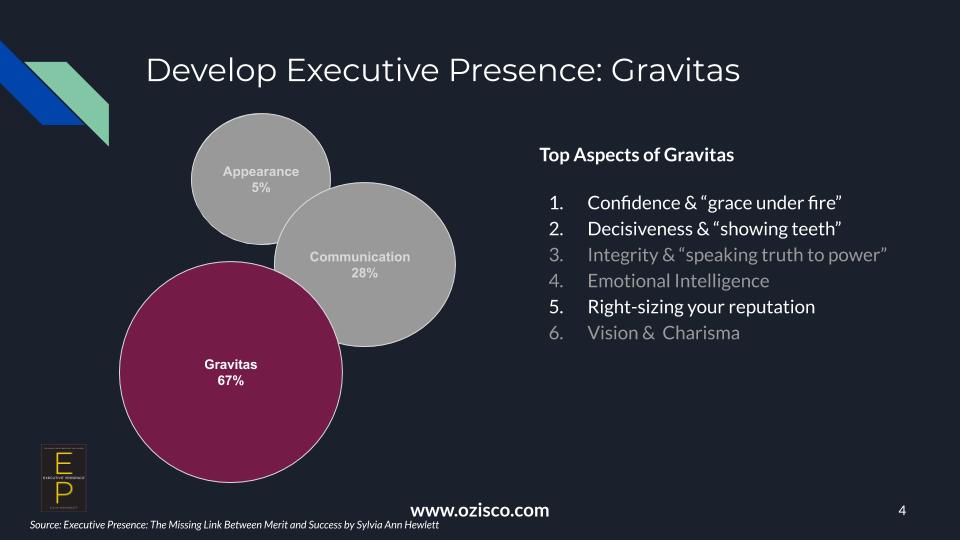
Gravitas is the very essence of executive presence. Without it, you simply won’t be perceived as a leader, no matter what your title or level of authority, no matter how well you dress or speak. According to Senior Leaders and Executives, the top aspects of Gravitas are listed in the slide. For this discussion, let us focus on three aspects.

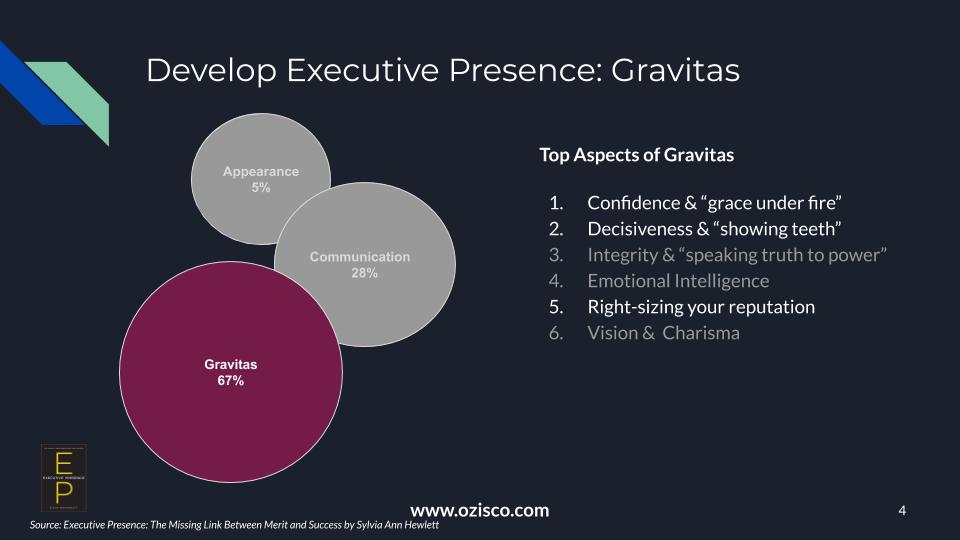
Confidence & “grace under fire” – When you think of any successful executive you know, it’s almost a given that you associate them with being confident and handling “pressure” with ease. If gravitas is the building, then self-confidence is the foundation. Executives want to deal with people who are confident and can handle pressure well because that is their world. When they meet someone with confidence, they are automatically attracted to that individual because they see a similarity.

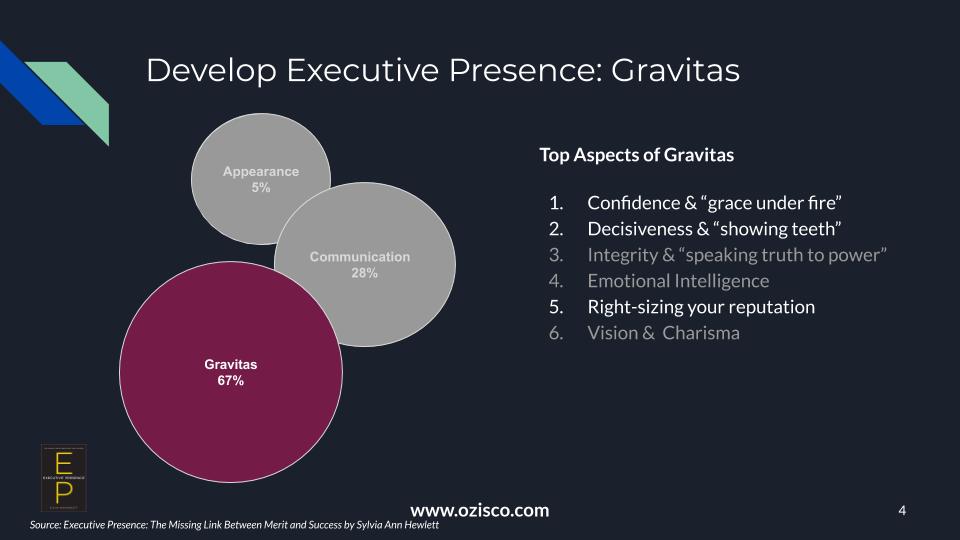
Decisiveness & “showing teeth” – making difficult decisions is what we look to leaders to do. Executives have to be decisive and are responsible for making the toughest decisions. To sell to executives, you need to develop the same level of decisiveness and showing teeth. According to Sylvia, “real leaders don’t issue edicts just to look and sound like they’re in charge. Real leaders listen, gather critical information, weigh the options carefully, look for a timely opening (typically when everyone else is wallowing in indecision), and then demand action.”

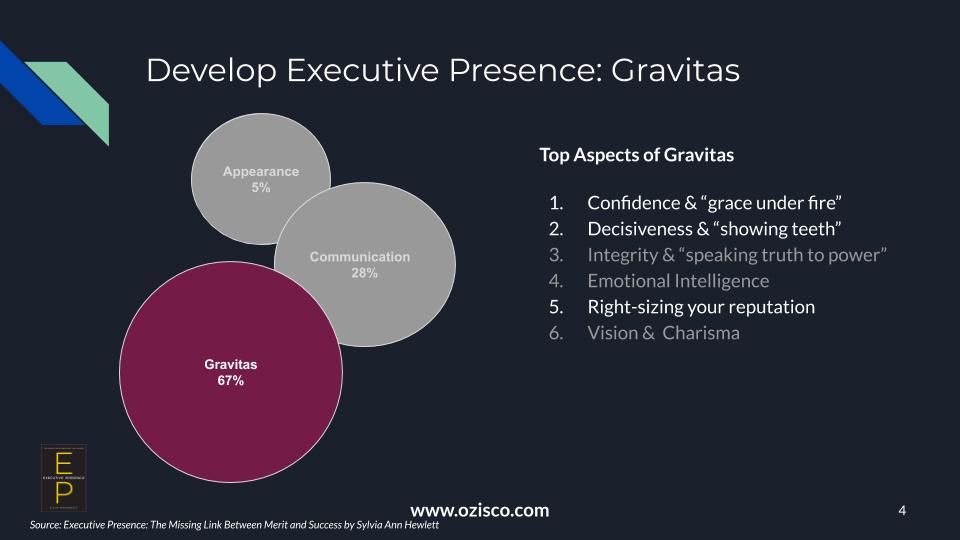
Right-sizing your reputation – your reputation precedes you. The best executives own their stories and you have to do the same. It’s common for someone to google you, check out your Facebook profile, read your tweets, or look at your LinkedIn profile before meeting with you. Are you owning your personal brand and reputation, offline and online?

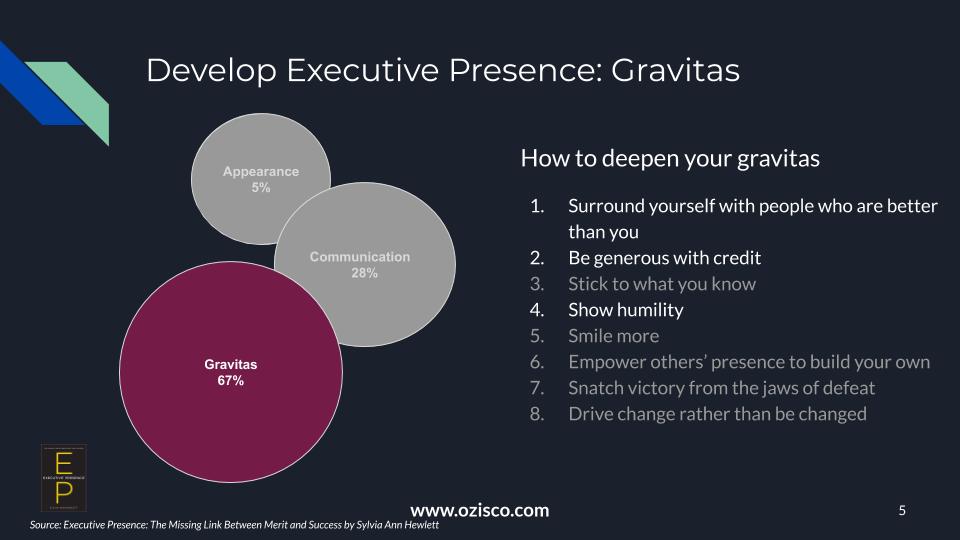
The author of the book provides eight ways to deepen your gravitas. I want to focus on the three that has helped me win over executives.

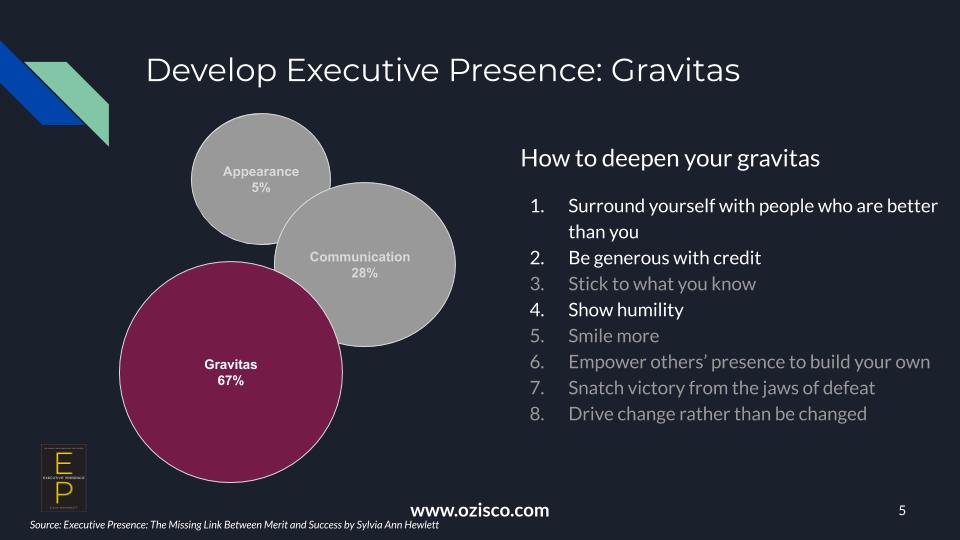
Surround yourself with people who are better than you. Studies show you’re the average of the five people you spend the most time with so there shouldn’t be any shame in seeking out people who are better than you and finding opportunities to hang around them. When you seek these individuals, they motivate you to step up your game and raise your standards. This constant pursuit of getting better accelerates the mastery of your craft which will help you win over executives. Executives want to know what other executives are doing and are always looking for opportunities to learn something new or get inspired. Be that inspiration for them.

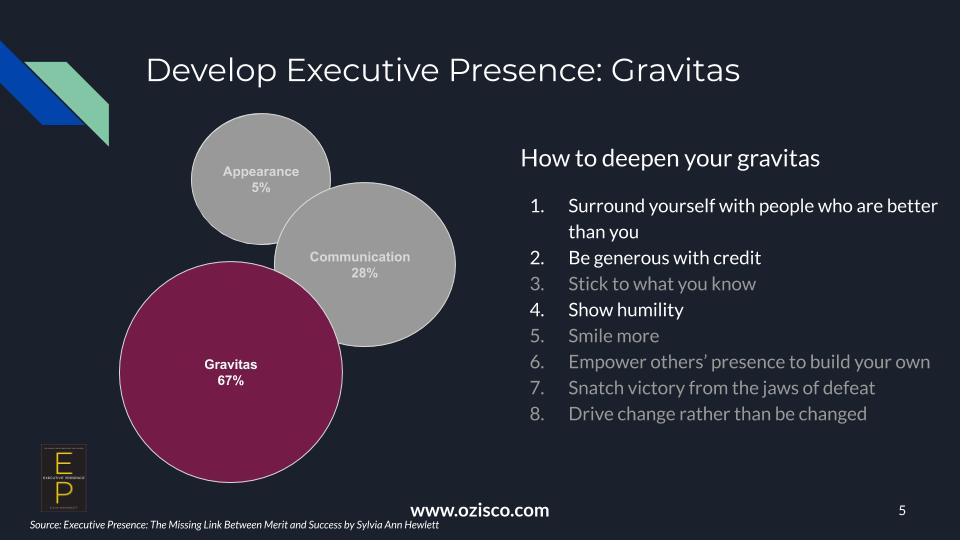
Be generous with credit – Have you ever had a boss or someone who always took the credit whether they deserved it or not? Well, that is a sign of shallow gravitas. As a leader, the more generous you are with your credit, the more your people will stay engaged and work harder because they know they will be recognized and appreciated. One simple thing I do after calls/meetings with an executive is to thank my team publicly for their insights and contribution in front of the executive. I even make it a point to thank the executive’s staff, whether they were involved directly or indirectly in the meeting. A good example of the impact of this was after a meeting with an executive I had been trying to tie down, I thanked him for his executive assistance (EA) and mentioned how pleasant it was to work with her. An hour or so later, I got an email from the EA, thanking me for going out of my way to say nice things to her boss. Guess what would happen when I ask her to schedule another meeting? Also, I’m sure the executive must be thinking, “this guy went out of his way to thank my EA, what a class act. I’ll definitely meet him again.” He did. This leads me to my next point, humility.


Show humility – Being humble, especially, in a world where everyone is trying to be famous on social media could be difficult. But it really doesn’t have to be. Being humble is always in style. Being humble could be as simple as admitting when you don’t know the answer to a question and committing to finding the answer. Executives can tell when you’re bluffing or making sh*t up. It’s not worth it. Be humble.

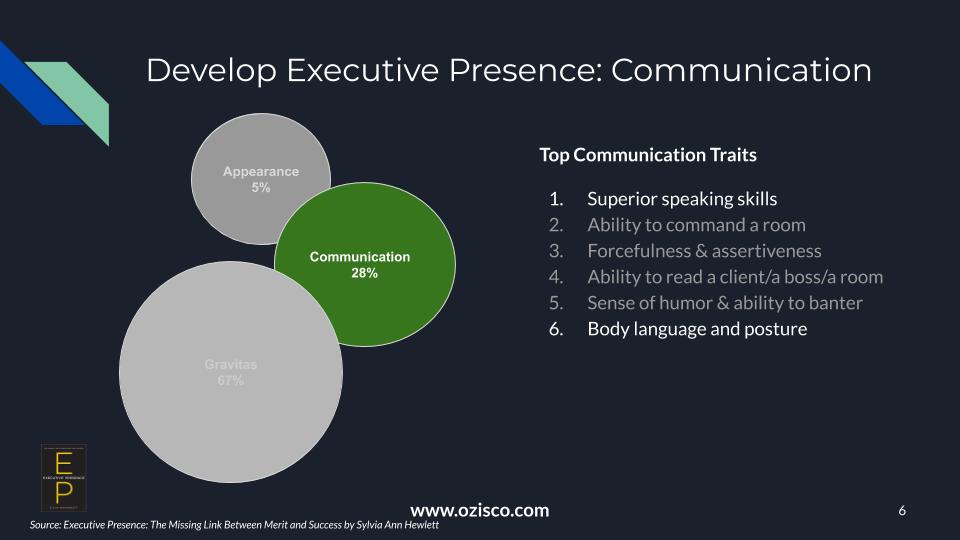
The second pillar of executive presence is Communication. I like the author’s definition of communication as it is not so much what you say, but rather how you say it. Essentially, your choice of words matter; your tone matters, your cadence, inflection, articulation, delivery, and eye contact, all play a key role in determining what and how much your listeners take in.


The author identified six communication traits but I want to focus on the first one superior speaking skills. A big component of speaking is your accent. In one of the first cold calls I made early in my sales career, the prospect thought I was calling him from another country because of how thick my accent sounded. I’ve since worked on flattening my accent with practice and coaching. However, when I get nervous, my accent tends to be dominant. Realizing this early in my career allowed me to work on it to ensure it didn’t impede my success.


The key to body language and posture is that to radiate presence, you have to radiate you are present. Have you ever watched someone say one thing in english with their words but their body language and posture was speaking a completely different language? Exactly. You words should match your body language.

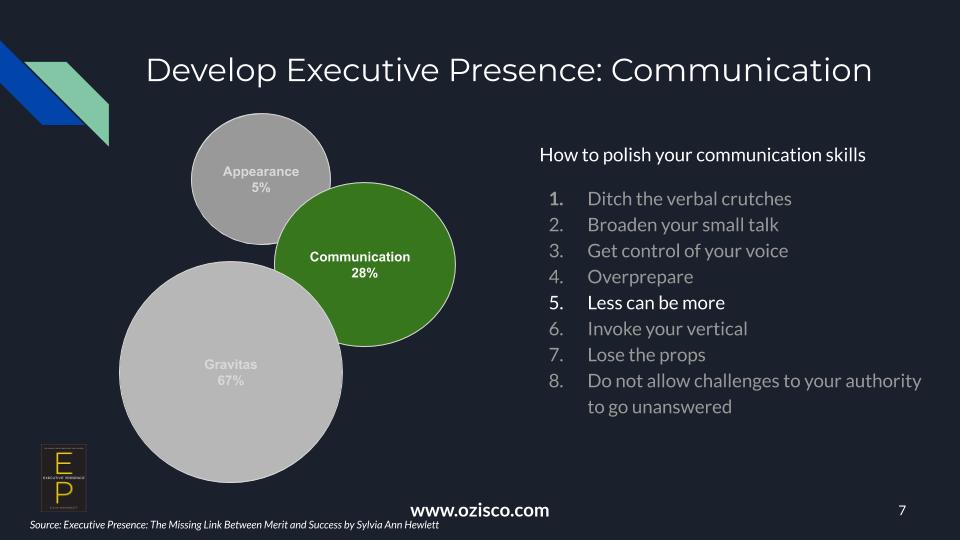
Now that we know what communication is, how can we polish it to help with our EP. The author suggested 8 ways to polish our communication skills. The one that has served me well with executives is less can be more. A majority of executives like when you’re succinct and straight to the point. This apply to answers as well as questions. It works magic.

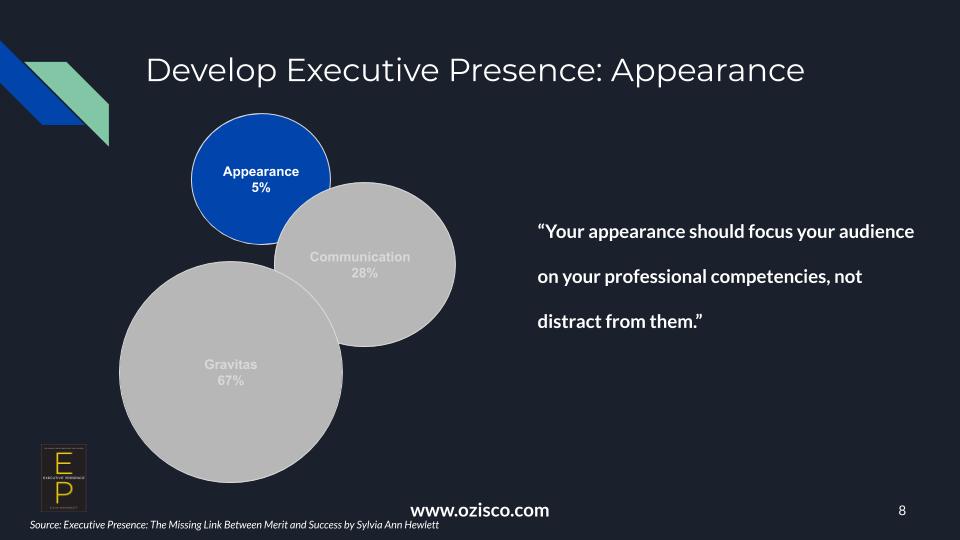
There is one principle that appearance underscores – your appearance should focus your audience on your professional competencies, not distract from them. One of the best advice I’ve received about appearance is to “dress to impress” this has served me well in my career. I’ve found that dressing like the executive or slightly better than the executive works well for me. I never want to dress down. The author describes it as it’s not how good you look, it’s how appropriate you look for your audience. Your appearance is part of your brand, so work on it to make the most of it.


Thanks, please share and encourage your network to subscribe so they can get access to this link!

